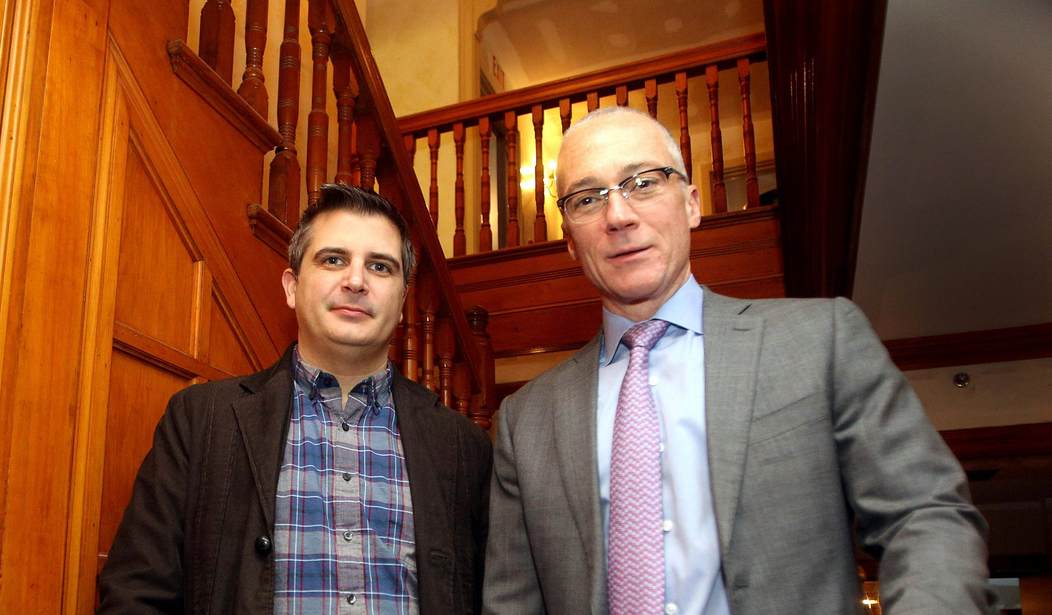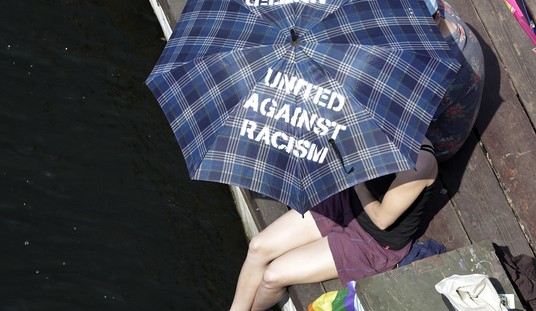More than 400 gay, lesbian, or transgender candidates are running for a variety of political offices in November, according to the LGBTQ Victory Fund. That’s four times more than the nonpartisan group saw in 2010.
“It represents an evolution in American politics,” Annise Parker, a former mayor of Houston and the Victory Fund’s president, said, “with voters choosing out LGBTQ candidates as the solution to the divisiveness and dysfunction we see in Washington and in many of our state capitals.”
Are any Republicans on that roster? Yes, Parker said, but not many.
For the first time since 2010, there are no LGBTQ Republicans on a congressional ballot anywhere in the U.S., and there isn’t a single gay or transgender candidate on a November gubernatorial ballot.
As a result, Parker described the increase in LGBTQ candidates as “thrilling but one-sided.”
She said anti-gay policies emanating from the White House and “extreme-right-wing state legislatures” have stopped LGBTQ GOPers from running for office. And those who did have the courage to seek elective office, Parker said, “are too often sidelined by homophobic or transphobic political forces.”
“Instead of a Rainbow Wave that should be celebrated by all Americans who believe in the wisdom of a truly representative government, we have a historic moment that is almost entirely partisan,” Parker said. “This story will not change until the party of Lincoln rejects the divisive rhetoric and policies too many of its leaders rely on.”
But they are out there. Take, for instance, 35-year-old Ken Richards, a gay man from Groton, Conn., who’s running for state representative. He’s found the shock of an LGBTQ person running on the GOP ticket is nonpartisan.
The married father of a 4-year-old son and the foster parent of an infant told the Hartford Courant an old friend was more than a little taken aback when he came out as a Republican.
“He literally said to me, ‘I can’t believe as a homosexual man you’re going to run for a party and then vote to take your own rights away,’’’ said Richards. “I have some socially progressive LGBT friends who say there is no way I should do this.”
And get this: Richards is only one of six gay Republicans on the November Connecticut General Assembly ballot.
One of them, Mary Fay, said it’s been tough for her to be on the same ticket as President Donald Trump, whom she called “despicable.”
But at the same time, compromise is at the heart of politics.
“I don’t like his style, and his rhetoric is over the top. But some of his policies are clearly working: the economy is doing really well,” Fay explained. “GDP is up, and businesses are confident.”
John Scott is a gay former state representative who wants voters to put him back in office. Like Annise Parker, he blamed the lack of gay GOPs on “ultra-conservative Republicans that set a tone” for the party and just don’t understand an LGBTQ Republican could be a mainstream politician.
“I consider myself to be fiscally conservative and socially liberal,” Scott said, “and I’d argue about 99 percent of the Republicans in Connecticut would say the same.”
In New Castle, N.H., Dan Innis is a gay Republican who’s living the dream. He got elected. Innis is the state senator who represents New Hampshire’s 24th District.
It hasn’t been easy. Innis was defeated when he ran in the 2014 GOP 1st Congressional District primary. But he stayed connected, serving as the state GOP’s finance chairman. Then, one of the top Republicans in the state approached Innis about running for the state Senate.
“I had a four-way primary two years ago — three guys, married, kids. You know, the typical American family,” Innis said to NBC News. “Then there was me — married with kids, but married to a man, and my kids are from a previous marriage. So it was different, and it was a little intimidating.”
But it didn’t kill him. Innis won.
“We are the ‘Live Free or Die’ state, and we don’t take rights away from people,” Innis said. “The legislature gave couples like me and (husband) Doug a right, and the legislature with a Republican veto-proof majority upheld that right.”
Without Innis, there would only be 20 gay Republicans serving in elective offices across America, out of the 559 LGBTQ officeholders in the U.S.
Innis believes the Republican Party needs more gay candidates, and the LGBTQ community needs the GOP.
“I’ve said for a decade, we cannot win the equality battle with just the Democratic Party. It won’t work, period,” Innis said. “You’ve got to win the hearts and minds of Republicans.”









Join the conversation as a VIP Member